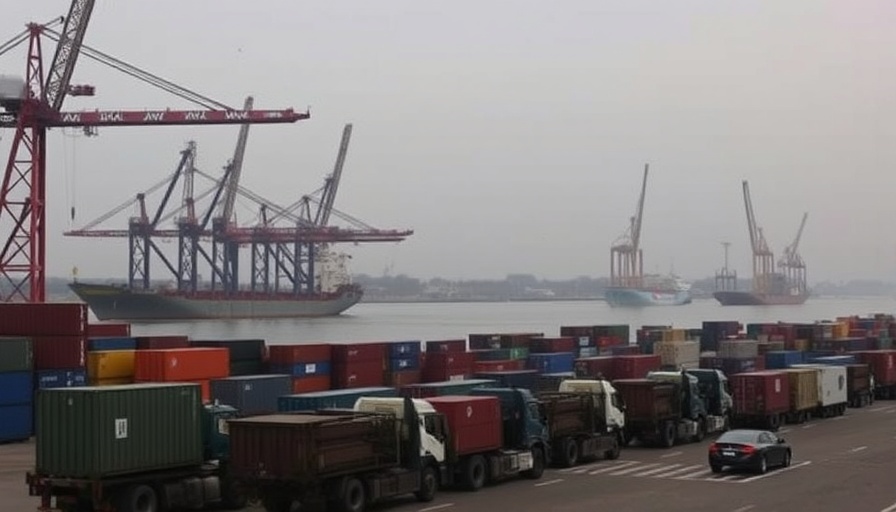
Nigeria's Strategic Embrace of AfCFTA
Nigeria's recent decision to fully engage with the African Continental Free Trade Area (AfCFTA) marks a monumental shift for the nation, crucially positioned as both a maritime powerhouse and a pivotal player in African trade dynamics. Historically hesitant regarding free trade agreements, Nigeria's entry into the AfCFTA opens up possibilities for significant economic transformation not just within its borders, but across the West African region.
The Context of AfCFTA
Launched to foster economic integration amongst 55 African nations with a combined GDP of $4.4 trillion, AfCFTA stands as the world’s largest free trade zone. Acknowledging its potential benefits, Nigeria's officials, including Dr. Abubakar Dantsoho of the Nigerian Ports Authority (NPA), have articulated a vision to position Nigeria as a leading maritime logistics hub under this new framework. This involves enhancement of port operations and infrastructure, ensuring smoother circulation of goods across the continent.
Challenges Ahead in Export Capabilities
While the promise of free trade through AfCFTA is enticing, Nigeria faces substantial challenges in fully realizing its export potential. Currently, bureaucratic inefficiencies plague the export process, stifling potential growth. The labyrinth of red tape and complicated export regulations make it challenging for Nigerian businesses to thrive in a competitive global market. As pointed out in various analyses, there remains an urgent need for structural reforms that simplify customs processes and encourage user-friendly trade practices.
Building Competitive Advantage through Infrastructure Investments
To unlock its economic prospects under AfCFTA successfully, Nigeria must prioritize strategic investments in logistics and port infrastructure. Dantsoho emphasizes that efficiency, driven by modernized ports and streamlined customs, is vital for Nigeria to compete effectively against other African ports. This requires fostering collaborations across the public and private sectors, particularly initiatives that focus on digitization, smart regulations, and investment in technology. Only with these developments can Nigeria hope to emerge unscathed from the shadows of trade barriers and harbor its ambitions of becoming a regional trade hub.
The Future of Nigeria's Position in Global Trade
The broader implications of these initiatives may soon unfold, with experts projecting a drastic increase in Nigeria's trade volume by 2035 under the AfCFTA framework. By significantly enhancing intra-African trade—estimated to rise by up to 52%—Nigeria stands poised to reap economic benefits that could uplift millions out of poverty. Moving forward, Nigeria's active participation in AfCFTA could catalyze not only its growth but also invigorate the entire African economic landscape.
Final Thoughts on Nigeria’s Trade Transformation
Nigeria’s engagement with AfCFTA presents both opportunities and challenges. The nation must navigate its complexities while fostering an environment conducive to trade. Business leaders and policymakers alike have a pivotal role in transforming these opportunities into tangible benefits. By bolstering its ports and striving toward seamless logistics, Nigeria can solidify its status as Africa's trade nexus, ultimately benefiting millions both locally and regionally.
It's crucial for stakeholders to unite in recognition of these dynamics and push for timely reforms. For more insights and strategic updates on Nigeria's evolving trade landscape under AfCFTA, keep following our coverage of Africa’s economic developments.
 Add Row
Add Row  Add
Add 


 Add Row
Add Row  Add
Add 

Write A Comment